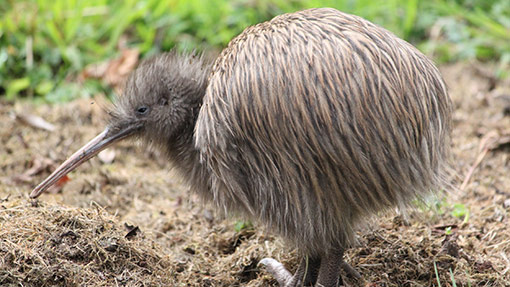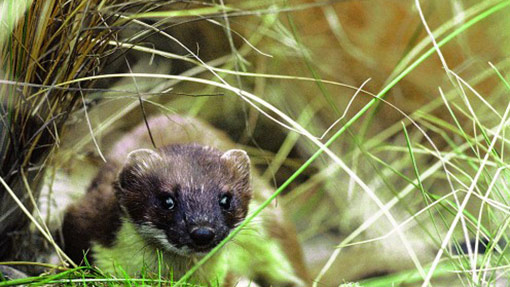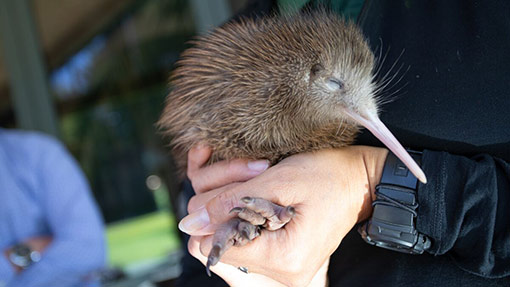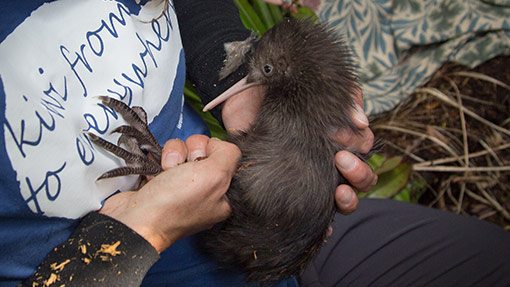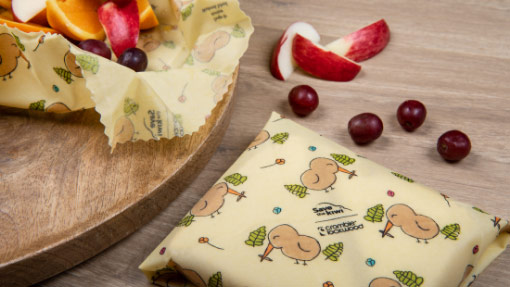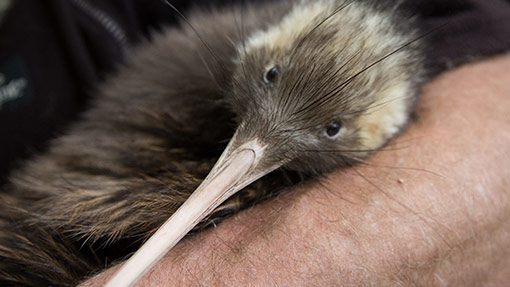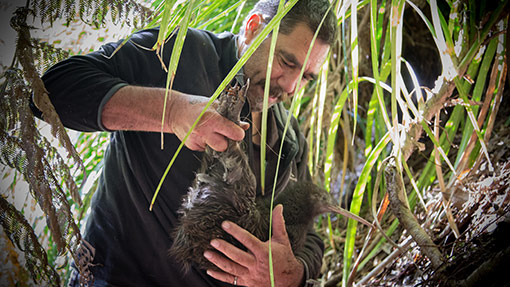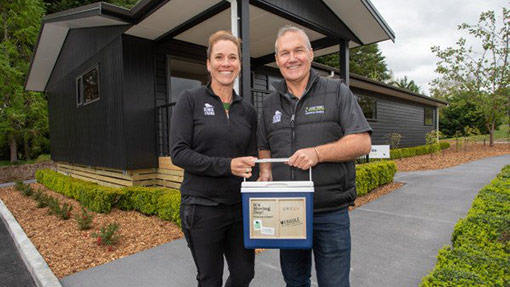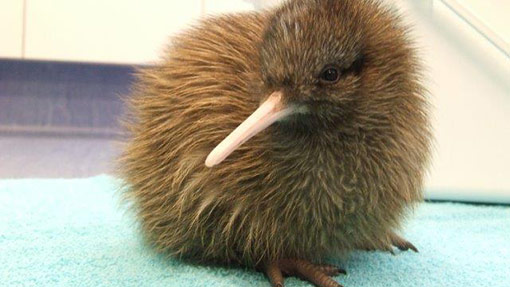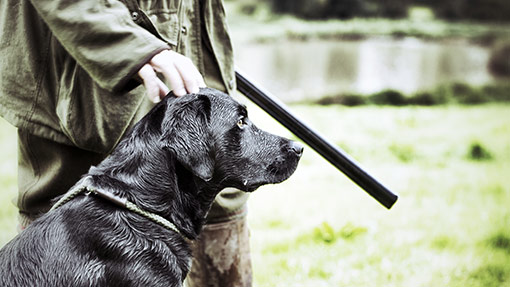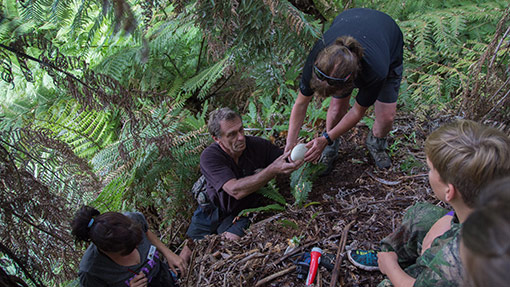Pets like dogs and cats are important members of many New Zealanders’ families. However, they also pose a serious risk to kiwi.
Dogs and cats can be very dangerous for wild kiwi and other native taonga. Dogs are the biggest threat to adult kiwi, while cats are a threat to other species.
It is possible for pet owners and their furry friends to live alongside wild kiwi.
Help for pet owners
Dog owners
Dogs are important members of many New Zealanders’ families. However, while stoats are the biggest threat to kiwi chicks, dogs are the biggest threat to adult kiwi. That’s because even an inquisitive sniff could fatally damage a kiwi’s incredibly delicate chest.
Therefore, it’s important to understand how to keep kiwi and other wildlife safe while you’re out and about with your dog.
Kiwi don’t have breastplates and chest muscles to protect their internal organs like other birds do. This means just a gentle nudge from an inquisitive dog has the potential to crush its very delicate ribcage and internal organs – even if the dog wasn’t being aggressive.
A kiwi doesn’t fly and sleeps during the day, which makes it particularly vulnerable to predators that hunt or roam the bush while it sleeps too.
Just one adult death is devastating to the kiwi population. One adult kiwi could lay 200 eggs in its lifetime, and her offspring could produce 800 chicks. Even just one kiwi death can have a devastating impact on kiwi recovery.
It’s not just wild dogs either. A roaming (or wandering) dog is any dog that is somewhere it shouldn’t be. Pet dogs, hunting dogs and farming dogs could kill a kiwi or another taonga species.
Even certified kiwi dogs, specifically trained to help conservation workers find kiwi, have to wear muzzles – just in case.
Here are some guidelines that dog owners can follow to keep wild kiwi safe:
- If you live or play in places where wild kiwi live, always make sure you prevent your dog from roaming. This will help to keep the dog safe too.
- Keep it tied up, in a kennel or inside at night.
- Keep it on a lead when walking in areas where kiwi and other wildlife live.
- Exercise your dog in public dog parks or designated dog-friendly locations.
- Be aware of and follow any bylaws about dogs in the areas you live and visit.
- If you see a sign that says dogs are prohibited from entering that area, obey it.
- Get your hunting or farming dog Kiwi Avoidance Trained.
- If you are travelling, do your research first. Contact the Department of Conservation Te Papa Atawhai to find out if wild kiwi live there and if dogs are allowed.
- If you’re hunting where wild kiwi live, put tracking collars on your dogs and take all dogs home at the end of the hunt.
- If you lose your dog, or see a roaming dog, report it immediately to your local DOC Area Office.

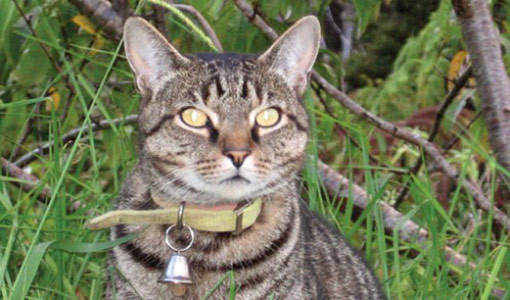
Cat owners
While cats aren’t usually a threat to kiwi, wild or abandoned cats are increasingly becoming a problem in areas where kiwi and other wildlife live.
Here are some guidelines that cat owners can follow to reduce the likelihood of their cat killing a kiwi:
- Keep your cat inside.
- Put a bell collar around its neck.
- Make sure your cat is well fed and has moving toys to play. It will be less inclined to chase birds and other creatures.
- Have your cat neutered or spayed so it can’t produce unwanted kittens.
Hunters
Pig, deer, or duck … It doesn’t matter what you like to hunt, you could run into a kiwi in the wild. Find out more about your responsibilities when it comes to kiwi conservation before you head out on your next hunting trip.
Farmers and landowners
A significant proportion of kiwi live on private land. If you’re a farmer or own land, find out how you can keep kiwi living on your property safe.
Forest owners
Kiwi can thrive in managed plantation forests if a few simple precautions are taken. Learn how you can protect wild kiwi without impacting the management of your forest.
Volunteer
Don’t fall into any of these categories but keen to help? There are plenty of volunteering opportunities available – discover some near your place.


